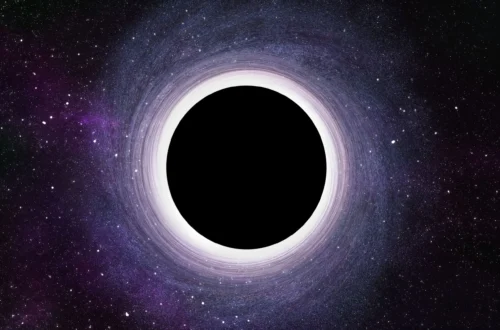Picture this: I’m out camping in the Rockies a few summers back, far from city lights, staring up at a sky exploding with stars. It hit me then—how everything we know, from those distant galaxies to the campfire crackling nearby, has an expiration date. Not just us mortals, but the whole cosmic show. Lately, scientists have been buzzing about new findings that suggest this grand finale might sneak up sooner than we’d bargained for. It’s not tomorrow or even in a million years, but these revelations make you pause and appreciate the now.
Traditional Views on Cosmic Doom
For decades, we’ve pictured the universe’s end as a drawn-out affair, stretching into numbers so big they lose meaning. Theories like the Big Crunch or eternal expansion dominated discussions, painting a picture of slow decay or dramatic reversal. But recent tweaks to these ideas are forcing a rethink, blending quantum weirdness with gravitational pulls.
The Heat Death Scenario
In heat death, everything spreads out until no energy gradients remain—no hot or cold spots to drive change. Stars fizzle, black holes evaporate over eons, leaving a cold, uniform soup. It’s the ultimate entropy win, where the universe just… stops.
The Big Rip and Crunch Alternatives
The Big Rip tears everything apart if dark energy ramps up unchecked, shredding atoms in a frenzy. Conversely, a Big Crunch sees gravity win, collapsing all back to a singularity—like rewinding the Big Bang. Both hinge on dark energy’s behavior, which we’re still decoding.
Breakthroughs in Hawking Radiation
Stephen Hawking flipped black hole lore in the ’70s by suggesting they leak radiation and shrink. Now, that idea’s expanding to other dense objects, hinting at faster cosmic erosion. It’s like discovering your indestructible fortress has a slow leak after all.
Extending Radiation to Stars and Remnants
Researchers found Hawking-like effects aren’t just for black holes—neutron stars and white dwarfs might evaporate too. This quantum tunneling erodes mass over time, accelerating the timeline for when these “eternal” remnants vanish.
Dutch Team’s Groundbreaking Study
A trio from Radboud University crunched numbers on this, factoring in density and gravity. Their work shows white dwarfs could dissolve in “just” 10^78 years, a sharp cut from older estimates. It’s theoretical, but backed by solid math.
The Shocking New Timeline
Old models pegged the universe’s fade at 10^1100 years—a 1 with 1,100 zeros. Now, with refined Hawking radiation models, we’re looking at 10^78 years for the last lights to dim. That’s still forever to us, but cosmically, it’s a rush job.
From 10^1100 to 10^78: What Changed?
The shift comes from including gravitational pair production, where particles form and escape near dense objects. Without it, remnants seemed immortal; with it, they have a shelf life. Black holes clock out around 10^67 years, white dwarfs linger longer but not eternally.
Implications for Dark Energy
Fresh data from telescopes like DESI suggests dark energy might weaken over time. If it does, expansion could halt in billions of years, leading to a crunch sooner than heat death. It’s like the universe hitting the brakes unexpectedly.
Comparing Endgame Scenarios
Weighing theories side by side highlights the drama. Heat death is slow and chilly; a rip or crunch, more explosive. Recent studies tilt toward quicker resolutions, but uncertainties remain.
Heat Death vs. Big Crunch
- Heat Death: Gradual cooling over 10^78 years; everything disperses evenly.
- Big Crunch: Collapse in perhaps 30-100 billion years if dark energy fades; reverses expansion.
- Key Difference: One’s a fade-out, the other’s a dramatic implosion.
Big Rip vs. Revised Evaporation
- Big Rip: Tears space apart in 20-50 billion years via runaway acceleration.
- Revised Evaporation: Stellar remnants gone by 10^78 years, but universe persists as void.
- Key Difference: Rip destroys structure fast; evaporation erodes remnants slowly.
Pros and Cons of a Sooner Cosmic End
Every fate has silver linings and drawbacks, even if we’re not around to see them. It’s philosophical fodder, reminding us of impermanence.
Pros: A Cleaner Closure?
- Ends speculation about infinite boredom in an empty cosmos.
- Motivates current science to probe dark energy before it’s “too late.”
- Adds urgency to existential questions, sparking human creativity.
Cons: The Loss of Eternity
- Robs future hypotheticals of endless exploration potential.
- Feels like cutting short a story mid-sentence.
- Heightens that nagging sense of cosmic fragility.
Table: Old vs. New Universe Lifespans
| Scenario | Old Estimate (Years) | New Estimate (Years) | Key Factor |
|---|---|---|---|
| Black Hole Evaporation | 10^67 to 10^100 | 10^67 | Hawking Radiation |
| White Dwarf Decay | Near Infinite (10^1100) | 10^78 | Gravitational Pairs |
| Neutron Star Fade | Indefinite | 10^68 | Density Effects |
| Overall Heat Death | 10^1100+ | 10^78 to 10^96 | Combined Remnants |
This snapshot shows how one tweak ripples through predictions. It’s a humbling reminder of evolving knowledge.
Dark Energy’s Wild Card Role
Dark energy, that mysterious accelerator, might not be constant. If it’s waning, as some 2025 data hints, the universe could contract in mere billions of years. Picture a balloon inflating then deflating—surprising, but possible.
Evidence from Recent Surveys
DESI and Euclid telescopes spot subtle shifts in expansion rates. Galaxies aren’t fleeing as fast as expected, suggesting dark energy’s grip loosens. This could flip the script from eternal stretch to sudden squeeze.
Potential for a Big Crunch Revival
If confirmed, we’d revisit crunch models from the ’90s. Gravity pulls back, heating everything to a singularity in 30 billion years or so. It’s faster than evaporation, reshaping fate debates.
What This Means for Humanity
We’re specks in time, but these ideas stir the soul. My Rockies night sky felt infinite; now, knowing it’s finite sharpens the wonder. It pushes us to explore while we can, from backyard scopes to space probes.
Short-Term Cosmic Events to Watch
In our lifetime? Solar flares, asteroid passes, maybe Mars landings. But grasping the endgame enriches those moments, connecting us to the bigger picture.
Long-Term Philosophical Ripples
It echoes personal endings—cherish the journey. Humor helps: at least we won’t run out of time for bad puns about the universe “checking out early.”
People Also Ask: Burning Questions on Universe’s End
Pulling from common searches, here’s what folks wonder about this mind-bender.
How Will the Universe End?
Likely heat death or crunch, per theories. Recent work favors faster decay via radiation, but dark energy holds the key.
When Will the Universe End?
New estimates: 10^78 years for full fade, or billions if crunch hits. Way beyond human scales.
What Happens at the End of the Universe?
Stars burn out, remnants evaporate, leaving photons and leptons in eternal chill—or collapse to nothing.
Is the Universe Infinite or Will It End?
Not infinite in time; finite lifespan, though space might stretch forever before dimming.
Where to Dive Deeper: Navigational Guides
Head to NASA’s cosmology page for visuals on expansion, or arXiv for free papers on Hawking radiation. Check the European Space Agency’s Euclid mission site for dark energy updates.
Best Tools and Books for Cosmic Exploration
Grab “The End of Everything” by Katie Mack for engaging reads on fates—pros: accessible, cons: might keep you up pondering. Tools like Celestron telescopes let you spot galaxies yourself; apps like SkySafari simulate timelines. For pros, software like Universe Sandbox models scenarios—fun but pricey.
FAQ: Clearing Up Cosmic Confusions
Why Do Scientists Say the End Is Sooner?
Updated Hawking radiation models show remnants like white dwarfs evaporate faster, slashing timelines from 10^1100 to 10^78 years.
Could Dark Energy Cause a Quicker End?
Yes, if it weakens, expansion reverses in billions of years, leading to a Big Crunch—far sooner than heat death.
Will Humans Witness the Universe’s End?
Absolutely not—it’s trillions of years away. Our sun engulfs Earth in 8 billion years, long before.
What Role Does Hawking Radiation Play?
It erodes black holes and now, per new studies, other dense objects, hastening the cosmic wind-down.
Is There Any Way to Prevent the End?
No, it’s physics’ inexorable march. But understanding it fuels science, perhaps unlocking multiverse ideas.




